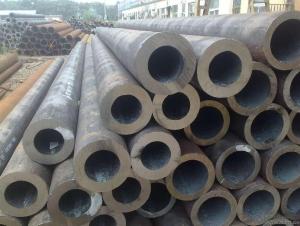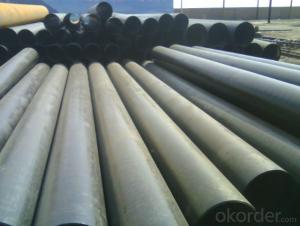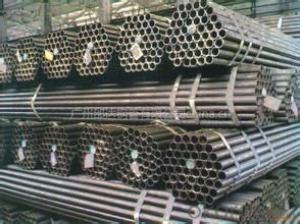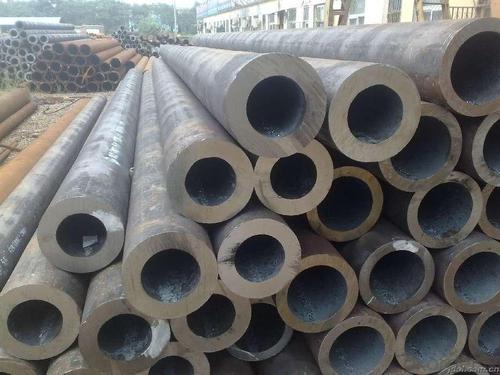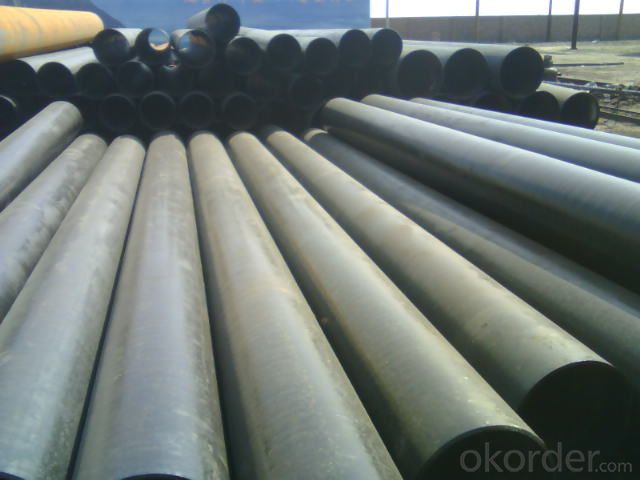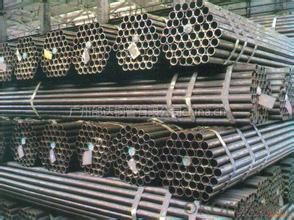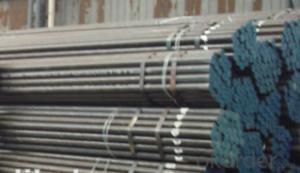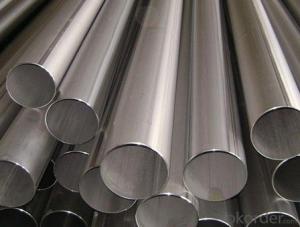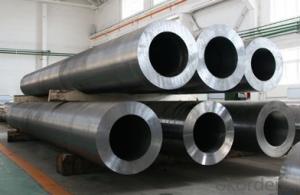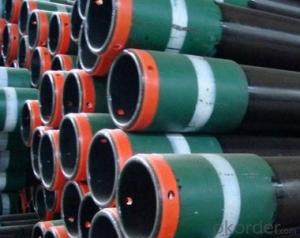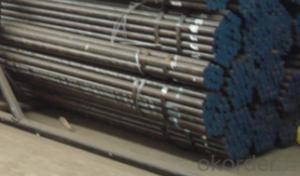Steel pipe for carbon seamless Hot Rolled cnbm
- Loading Port:
- Qingdao
- Payment Terms:
- TT OR LC
- Min Order Qty:
- 10 pc
- Supply Capability:
- 30 pc/month
OKorder Service Pledge
OKorder Financial Service
You Might Also Like
Quick Details
Thickness: 6 - 50 mm Section
Shape: Round
Outer Diameter: 33 - 600 mm
Secondary Or Not: Non-secondary
Application: Fluid Pipe
Technique: Hot Rolled,Hot Rolled,Cold Drawn,Hot Expanded Certification: API Surface Treatment: Beveled end or plain end or varnished as per buyer
Special Pipe: API Pipe Alloy Or Not: Non-alloy
Brand Name: XPY(Xinpengyuan)
Length: 6-12m or according to clients' requirements
Standard: BS 3059-2,JIS G3454-2007,GB 5310-1995,GB 3087-1999,GB/T 8163-1999,GB/T 8162-1999,GB 6479-2000,DIN 1629/3,DIN 2448,ASTM A106-2006,ASTM A53-2007,API 5CT,API 5L,BS,JIS,GB,DIN,ASTM,API
Grade: 20#,45#,15CrMo,12Cr1MoV,16Mn,A53(A,B),A106(B,C),API J55,API K55,API N80,API P110,St52,St45,Q235,Q345,10#-45#,Cr-Mo alloy,A53-A369,API J55-API P110,ST35-ST52,Q195-Q345
Packaging Detail: Beveled end , plain end, varnished, or adding plastic caps/ according to customers' request
Bundles or loose, each bundles with 8 steel strips and
nylon slings wrapped with water proof plastic cloth.
We also pack our products according to customer’s requirement
- Q: How are steel pipes protected against rusting?
- Steel pipes are protected against rusting through a process called corrosion protection. There are several methods employed to prevent rust formation on steel pipes, including: 1. Coatings: One common method is applying various coatings to the surface of the steel pipes. These coatings act as a barrier, preventing oxygen and moisture from reaching the metal surface and initiating the rusting process. Coating options include epoxy, polyethylene, zinc, or even a combination of these materials. 2. Galvanization: Galvanizing steel pipes involves immersing them in a bath of molten zinc. This process creates a protective layer of zinc on the surface of the pipes which acts as a sacrificial barrier. If any small areas of the pipe surface are exposed, the zinc coating will corrode instead of the steel, providing ongoing protection against rust. 3. Cathodic Protection: This method utilizes an electrical current to protect the steel pipes. By connecting the pipes to a sacrificial anode, usually made of zinc or magnesium, the anode will corrode instead of the steel pipes when exposed to moisture and oxygen. This process is commonly used in underground or underwater applications. 4. VCI (Vapor Corrosion Inhibitor) Technology: VCI technology involves the use of chemical compounds that release a vapor that protects the steel pipes from rusting. These compounds form a thin layer on the surface of the pipes, inhibiting the corrosion process by neutralizing oxygen and moisture. 5. Regular Maintenance: In addition to the above methods, regular inspection and maintenance are crucial to prevent rust formation on steel pipes. This includes cleaning the pipes, removing any accumulated debris or corrosive substances, and repairing any damaged coatings or protective layers. Overall, these methods of corrosion protection effectively safeguard steel pipes from rusting, ensuring their longevity and durability in various industrial, commercial, and residential applications.
- Q: What is hot rolled steel pipe? What is a cold drawn steel tube?
- Hot rolling is relative to cold rolling, cold rolling is performed under recrystallization temperature, while hot rolling is rolling above recrystallization temperature.
- Q: Can steel pipes be used for structural supports?
- Yes, steel pipes can be effectively used as structural supports due to their high strength, durability, and ability to withstand heavy loads.
- Q: How are steel pipes used in the aerospace industry?
- Steel pipes are commonly used in the aerospace industry for various applications such as fuel lines, hydraulic systems, and structural components. These pipes provide strength, durability, and resistance to high pressure and extreme temperatures, making them ideal for delivering fluids and gases, supporting critical systems, and ensuring the structural integrity of aircraft and spacecraft.
- Q: Is hot dipped plastic pipe steel?
- Hot dip plastic composite pipes used in coal mine gas drainage, ventilation system, fire water system, central air conditioning HVAC piping circulating water, industrial water supply and drainage, water supply and drainage life, conveying gas and other gases, power threading, chemical pipelines and water disposal pipe etc..
- Q: Are steel pipes suitable for potable water applications?
- Yes, steel pipes are suitable for potable water applications. Steel pipes are commonly used for transporting water in various industries and municipal water systems. They are known for their durability, strength, and resistance to corrosion, making them a reliable choice for potable water systems. Steel pipes also have the advantage of being able to withstand high pressure and temperature conditions, making them suitable for both hot and cold water applications. Additionally, steel pipes can be easily welded, ensuring leak-free connections. However, it is important to note that the quality of the steel used and proper maintenance are crucial factors in ensuring the safety and suitability of steel pipes for potable water applications. Regular inspection and maintenance should be done to prevent corrosion and ensure the integrity of the pipes.
- Q: How are steel pipes used in the construction of nuclear power plants?
- Steel pipes are used in the construction of nuclear power plants for various purposes, including transporting coolant, steam, and gases, as well as providing structural support for the overall system. These pipes are specifically designed to withstand high pressures, extreme temperatures, and corrosive environments, ensuring the safe and efficient operation of the nuclear power plant.
- Q: What is the maximum length of a steel pipe?
- The maximum length of a steel pipe will vary depending on various factors such as manufacturing capabilities, transportation limitations, and practical considerations. However, in general, steel pipes can typically be manufactured and transported in lengths ranging from a few meters to several hundred meters.
- Q: Can steel pipes be used for water treatment plants?
- Yes, steel pipes can be used for water treatment plants. Steel pipes are widely used in water treatment plants due to their high durability, strength, and resistance to corrosion. They can effectively handle the high pressure and flow requirements of water treatment processes. Additionally, steel pipes can be easily welded and joined, making them suitable for various applications within water treatment plants, such as transporting raw water, treating chemicals, and distributing treated water.
- Q: Can steel pipes be used for transporting chemicals?
- Yes, steel pipes can be used for transporting chemicals. Steel pipes are known for their high strength and durability, making them suitable for handling various chemicals, including corrosive substances. Additionally, steel pipes can withstand high pressure and temperature conditions, ensuring the safe transportation of chemicals. However, it is essential to select the appropriate grade of steel and implement proper coating or lining to prevent chemical reactions or corrosion that may compromise the integrity of the pipes.
Send your message to us
Steel pipe for carbon seamless Hot Rolled cnbm
- Loading Port:
- Qingdao
- Payment Terms:
- TT OR LC
- Min Order Qty:
- 10 pc
- Supply Capability:
- 30 pc/month
OKorder Service Pledge
OKorder Financial Service
Similar products
Hot products
Hot Searches
Related keywords
